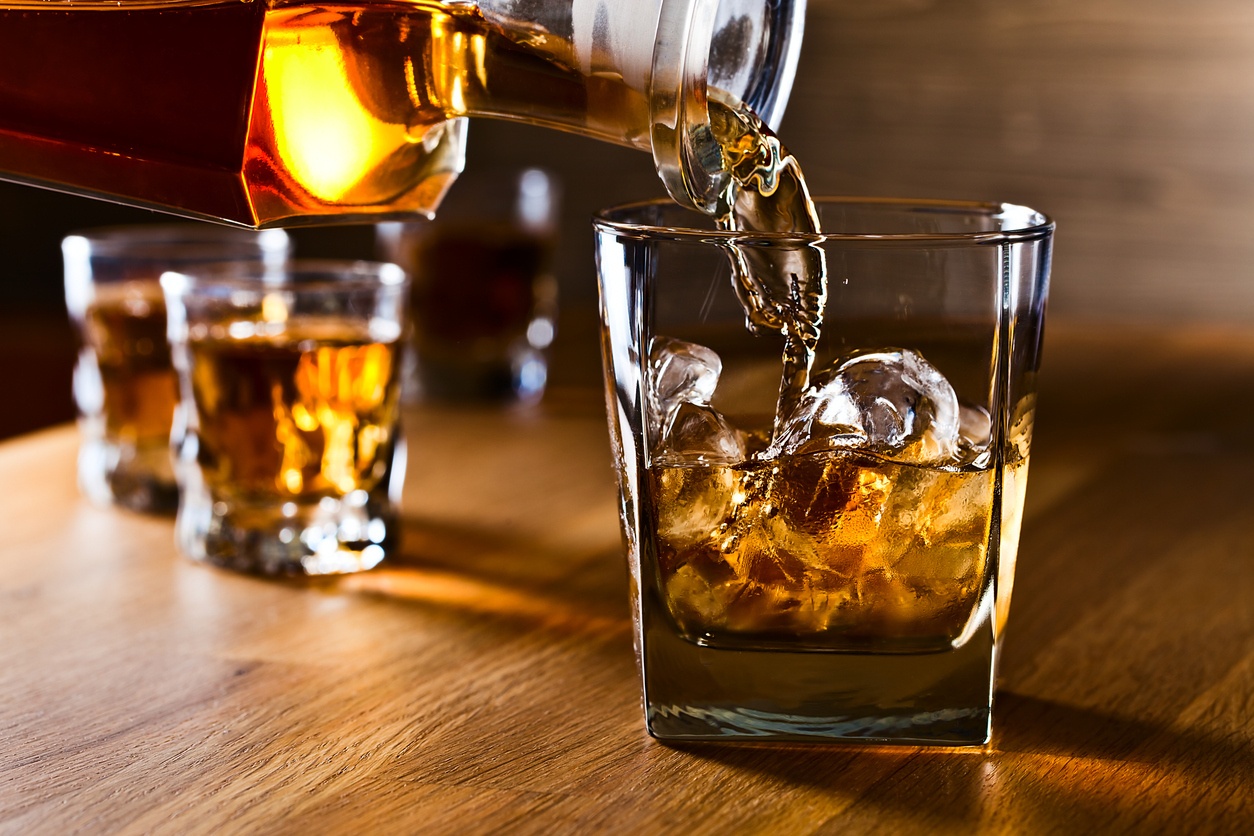The Irish can lay claim to a medley of important inventions over the years, but aside from Colcannon, we have to say our personal favorite has got to be whiskey. Sipped around the world for centuries, it’s the kind of drink with history infused into every drop, and what a history it is! We can thank the Greeks for inventing distilling, but it was a method originally used for making perfumes, not quality booze. Instead, it was Irish monks sometime around the 11th century who first brought the skill back to Ireland, and it was these same monks who can be credited with the invention of whiskey, at least according to legend. Originally called uisce beatha – Gaelic for “water of life” – it was distilled by modifying the original Greek methods to produce something that could actually be consumed; in fact, it wasn’t until the early 1400’s that we see the first written accounts of whiskey, but that first account would set the stage for centuries of unmatchable highs and unspeakable lows.
By the 1500’s, Irish whiskey was starting to make a name for itself, particularly in England where it had become a favorite drink of Queen Elizabeth I. At this time, Irish whiskey production was still a hodge-podge mess of home and small-scale distillers – whiskey production didn’t exist as legal industry, and export was a complicated and fragmented business. It wasn’t until King James I of England issued the first license to a distillery at Antrim in 1608 that Irish whiskey became a fully-fledged industry with all the trappings thereof. Sadly, even good whiskey isn’t immune to socio-political strife, and Irish whiskey along with Ireland herself have certainly taken a beating over the years. By the 1660’s, the British government had decided that Irish whiskey was doing entirely too well for their taste and that something would have to be done. The crown instituted a whiskey tax called a “proof spirit”, which meant that distillers would be charged 4 pence for every gallon of whiskey produced. These clever Brits thought the tax would depress the growing whiskey industry into oblivion, and to a certain extent it did, but alas, all it really managed to accomplish was to create a flourishing underground market for illegally produced whiskey. This would become a running theme all the way up to the 1830’s, with the British crown imposing tax after prohibitive tax while Irish distillers kept coming up with ever-more creative ways of combating them.
When the laws finally began to ease, the Irish whiskey business exploded almost overnight, and over the next 40 years would continue to expand and evolve into something almost like what we know today; sadly, the world loves to try and beat an Irishman down, and Irish whiskey was still in for a good beating. At first, the main concern was growing competition from Scotland. Newly developed blended Scotch whisky (note the lack of an “e”) was more economical to produce and had begun taking over Irish whiskey’s tried-and-true export market. Irish distillers balked at the notion of blending whiskeys, a practice which had been readily accepted in Scotland, sparking a legal debate that would unfortunately not come out in Ireland’s favor. Nevertheless, Irish whiskey still continued to enjoy economic success through the early 1900’s; then came World War I and The Troubles, and everything was downhill from there. Barley, which had previously been available for distillers, was redirected to supporting the vast numbers of Irish soldiers involved in the various conflicts, causing whiskey production to plummet. When the Irish War of Independence sparked in 1916, export to England and the colonies gradually dried up, further damaging what was by that point already a substantially weakened industry. Finally, in 1919 – as if things weren’t already bad enough – the US passed prohibition into law, and between the loss of the US market and a subsequent trade war with England, Irish whiskey seemed to be dead in the water.
By the end of World War II, only five distillers remained – Jameson, John Powers and Sons, Paddy’s Irish Whiskey, Tullamore Dew, and Bushmills. Scotch whisky dominated the market, and between the still-raging conflict in Ireland and their own homegrown competition, it seemed certain that the remaining Irish whiskey distillers were doomed to a slow and agonizing death. In a last-ditch attempt to save Irish whiskey, the distillers banded together, forming the Irish Distillers Group in 1966. The companies went from having almost no market to having a monopoly, kicking off the rebirth of the Irish Whiskey industry. In 1988, the group was purchased by the French drink giant Pernod Ricard, who in turn launched a massive effort to market Irish whiskey on a global scale with Jameson as their poster child. Today, Ireland is an ever growing and changing map of distillers, with more and more niche distilleries opening every year. It’s a glorious reflection of the ingenuity, creativity, and unrivaled tenacity of the Irish people, and we love nothing more than to raise a glass and say “sláinte” to Irish whiskey!
West Cork 10 Year, Single Malt Irish Whiskey
($16.99, 750 ml. Bottle)
Patiently matured in first fill bourbon casks to deliver a smooth, subtle and quintessential Irish whiskey. Light oak in color, the aroma is malty with citrus and cracked pepper. Lingering sweetness with apple and nutmeg.
Bushmills Irish Whiskey
($13.99, 750 ml. Bottle)
Bushmills Original Irish Whiskey is a blend of triple distilled malt whiskey and a lighter grain whiskey. It’s an easy drinking, versatile whiskey that can be enjoyed neat, over ice or with your favorite mixer.
Slane Irish Whiskey
($18.99, 750 ml. Bottle)
The whiskey finishes with lingering hints of dried fruit and delicate brown or baking spice. Masterfully blended and aged to perfection, Slane Irish Whiskey is a true reflection of their unique provenance and processes.
Tullamore Dew Irish Whiskey
($15.99, 750 ml. Bottle)
Triple distilled and patiently aged in a combination of ex- bourbon and sherry casks, this original blended Irish whiskey is known the world over for its smooth and gentle complexity.
Teeling Irish Whiskey
($22.99, 750 ml. Bottle)
This small batch bottling consists of hand selected casks which are given further maturation in exrum barrels. Bottling at 46% with no chill filtration completes an Irish whiskey of true character.
Jameson Irish Whiskey
($18.99, 750 ml. Bottle)
Triple distilled whiskey takes hundreds of years to get it just right. In 1780, Master Distiller John Jameson discovered that three distillations were best for his Jameson Irish Whiskey and his legacy continues to this day.
Five Farms Single Batch Irish Cream
($23.99, 750 ml. Bottle)
Now here is the Ultimate Irish Cream!! The lush palate coats the mouth with flavors of coffee with fresh cream, dulce de leche, coconut, maple, and Belgian waffles. An intensely satisfying after dinner sipper in place of dessert.


No comments yet. Add the first comment